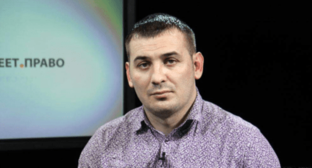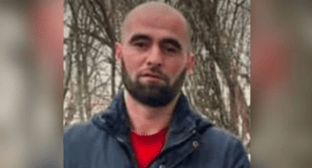05 March 2010, 10:00
Week in the Caucasus: review of main events of February 22-28
Inspectors report about solving resonant murders in Northern Caucasus; exchange of prisoners of was between Georgia and South Ossetia is in deadlocked; Chechnya celebrates Prophet Mohammed's birthday; human rights activists are beaten in the Kuban River area, - look up these and other events in the review of the week of February 22-28, 2010, in Caucasian regions prepared by the "Caucasian Knot".
Authorities' statements on solving resonant crimes disbelieved
On February 24, Vladimir Markin, spokesman of the ICPO (Investigatory Committee at the Prosecutor's Office) of Russia reported about detention of five persons on the murder case of Adilgerei Magomedtagirov, head of the Ministry of Internal Affairs of Dagestan. At present, charges have been presented to three of the arrested persons. The remaining two will see them in the near future.
No personal data of the defendants and suspects is disclosed yet; however, some media have reported that all the five figurants are from the Botlikh District. Two of them were contracted private soldiers of the mountain rifle division of the Ministry of Defence. The third one - Andrei Rozanov - was an ensign in the same brigade. The two remaining suspects - Abdulmazhid Manapov and Shamsullah Berziev - are also former power agents. Manapov was a sergeant of the patrol-sentry squadron, and Berziev was a court marshal.
However, on the following day, February 25, Ahmadudin Berziev, a resident of Rakhat village, Botlikh District and father of Shamsullah Berziev, a suspected organizer of the murder, told the "Caucasian Knot" correspondent that his son was tortured. His bodily injuries were confirmed by a medical certificate.
On February 25, a source in law enforcement bodies of the Southern Federal District (SFD) that the murder of Chechen human rights defender Natalia Estemirova had been solved. Under his information, the search of the direct gunman and investigatory actions aimed towards establishing the customer of the murder were underway.
Then, employees of the Human Rights Centre (HRC) "Memorial" contacted the investigatory group and were told that the name of Estemirova's murderer was not yet established. Oleg Orlov, head of the HRC "Memorial", expressed fear that "political reasons may hamper the group in finalizing their inquiry."
The representative of the HRC "Memorial" in Chechnya told the "Caucasian Knot" correspondent that his organization also had no information that Estemirova' killer had been established.
"Back last autumn, according to some of my colleagues, inspectors found the car, in which Natalia was taken away. That car had been used by employees of one of local power agencies; however, with different number plates," the head of a local NGO, who knew Estemirova very well, has stated.
International community involved in settling Georgia's conflicts with Abkhazia and South Ossetia
On February 28, Thomas Hammarberg, Supreme Commissioner of the Council of Europe, brought three women-citizens of the Russian Federation, earlier detained in Gori (Georgia), to Tskhinvali (South Ossetia). Mr Hammarberg promised to come back to the city as soon as he got results in exchanging the detainees "all for all."
He also stated that the condition of the 11 Georgians kept in the Tskhinvali prison was normal; and that they were under doctor's care. According to his version, none of the Georgians was beaten. However, Mr Hammarberg admitted that he failed to raise the issue of their release before the authorities of South Ossetia.
Thomas Hammarberg's visit to Tskhinvali was made within his three-day visit to Georgia. He was accompanied by two experts - Bruce Richard Pegg (Australia) and Nicolas Cebir (France). In future, these two will deal with the fate of missing Ossetians, while Hammarberg himself will focus on prisoners' cases.
Boris Chochiev, Plenipotentiary of President of South Ossetia for post-conflict settlement, said that the delivery of women-citizens of Russia had nothing to do with return or exchange of prisoners.
"In Gori, three women - Ossetians by nationality and residents and citizens of the Russian Federation - were detained. They came to Gori to their sick mother who later died on that very day. Georgian authorities did not allow them to bury their mother, and kept them in custody all the night long," said Mr Chochiev.
According to his version, the issue of prisoners' release or exchange is still outstanding.
"Our goodwill steps should not be expected, unless the authorities of Georgia decide to return our citizens," Boris Chochiev has concluded.
At the same time, the official Tbilisi brought its new strategy of Georgia's attitude to Abkhazia and South Ossetia to the attention of the world community. In particular, it assumes an intention to bring these territories back in a peaceful way.
On February 22, a delegation of Georgia's legislative and executive authorities left for Germany for discussing this document. Later, with the aim to acquaint the United Nations with the strategy, Taimuraz Yakobashvili, State Minister of Georgia for Reintegration, arrived in the USA.
According to Grigol Vashadze, Georgian Minister of Foreign Affairs, the strategy on Abkhazia and South Ossetia has been coordinated with American and European experts, who shared practically all its points. Nino Kalandadze, Mr Vashadze's deputy, noted, in her turn, that the document contains "very pragmatic ideas and puts many aims connected with the occupied territories." According to her version, the point is in "safe and worthy return of refugees."
New holidays in Northern Caucasus
The Chechen Republic held celebrations in honour of Prophet Mohammed's birthday. The main holiday events started on February 25 at 6:00 p.m. and lasted all the night long. The celebrations of the Prophet's birthday were visited by clergymen from Algeria, Brunei, Iraq, Iran, Indonesia, Jordan, Cameroon, Lebanon, Palestine and Turkey.
The main mosque of the republic - "Heart of Chechnya", capable to house 10,000 persons, - and the adjoining square were overcrowded. People took part in the morning pray and religious practices dedicated to the Moslems' holiday.
At dawn, the start of the holiday was announced by long fireworks in the sky over Grozny and major cities and towns of the republic. The celebration of the sacred day was broadcast via a satellite live on air by the "Grozny" TV Channel.
On that day public transport and even private taxis transported passengers in the territory of Chechnya free of charge. In cities and districts of the republic foodstuffs and meat were given out to needy people, orphans and invalids. Under Ramzan Kadyrov's order, parents of the children, who were born on February 25 and in the first half of the following day, were awarded by 30,000 roubles per child.
Eyewitnesses mark that for the first time ever the Prophet's Birthday was celebrated so broadly in Chechnya.
Two days earlier, on February 23, Chechnya marked another anniversary of the 1944 deportation. Prays were read in local mosques, immolations other religious practices were held in all district centres and dwelling settlements of the republic.
In the context of these events, special security measures were introduced. Traffic was blocked in central Grozny, mobile militia posts were deployed, and the districts adjacent to the concert hall and the central mosque of the republic were cordoned by power agents. Residents of the Chechen capital expressed their discontent with agents' actions.
Let us note here that mourning events were also held in Ingushetia and in the areas of North Ossetia where Ingushes live. All the culture houses of Ingushetia held mourning prayers to commemorate the victims. Memorial parties took place in schools and universities.
In Nazran, a mourning rally was held in the square near the memorial complex to victims of political repressions, where the local clergymen and republic's leaders took part.
Because of the mourning ceremonies, the republic cancelled the Homeland Defender Day.
Other regions of Russia traditionally celebrated the Homeland Defender Day on February 23.
In Rostov-on-Don, the local branch of the CPRF (Communist Party of the Russian Federation) marked the date with rallies in defence of servicemen's rights.
Not everywhere, celebrating passed smoothly. Thus, in Volgograd, a delegation of communists, which included veterans of the Great Patriotic, could not lay their wreath to the Eternal Flame in the Heroes' Avenue together with representatives of regional administration.
Militiamen told them that "until the regional officials and mass media quit the venue, they won't let communists to the Eternal Flame to lay the wreath down."
Communists were given a chance to commemorate the Homeland defenders, when the official part of the celebration was over, and the military orchestra, journalists and regional bosses left the venue.
Pressure on human rights activists toughens in southern Russia
Two scandals connected with pressure on NGO activists burst out last week in the Krasnodar Territory.
On February 27, Vadim Karastelyov was severely beaten by unknown persons in a suburb of Novorossisk. "The preliminary diagnosis was a brain concussion. So far, it's not clear what the matter with his right eye is: it was swollen and lost vision," Marina Dubrovina, Karastelyov's advocate, told the "Caucasian Knot" correspondent.
Earlier, on February 26, Vadim Karastelyov was released from custody. The human rights activist spent 7 day in the investigatory isolation facility, after he had been detained by militiamen, when distributing leaflets inviting to come to a rally in Dymovskiy's support. Currently, Militia Major Alexei Dymovskiy, whose interests are represented by Vadim Karastelyov, is kept in a pre-trial facility in Krasnodar.
In the meantime, it became known that the criminal case initiated by the Prosecutor's Office of the Western Administrative District of Krasnodar against Anastasia Denisova, head of the local organization "ETnIKA", was sent to the court. Ms Denisova is accused of illegal use of copyright objects through abuse of her service position and is under a threat of up to 6 years of imprisonment.
Anastasia herself and her colleagues believe that the criminal prosecution and moral pressure applied against her have been caused by her public activities and the work of her NGO "ETnIKA".




